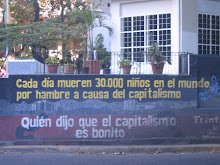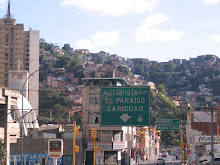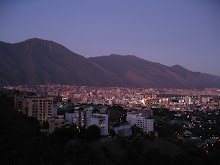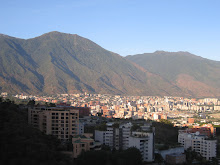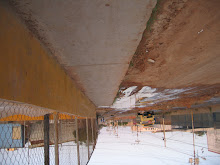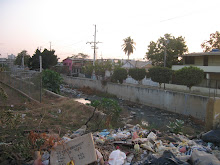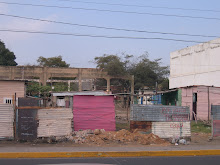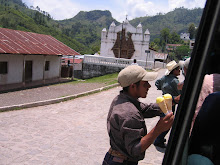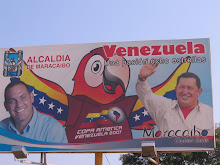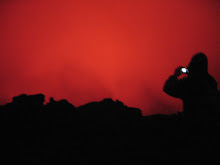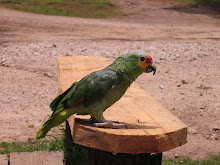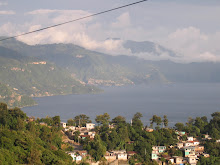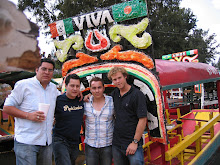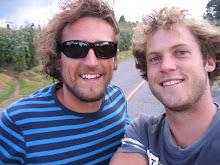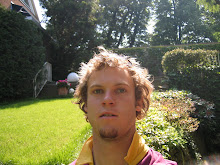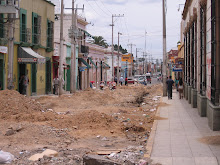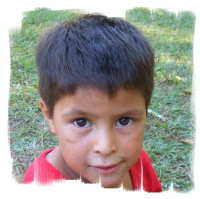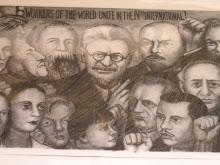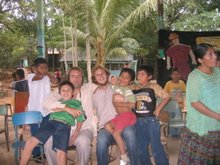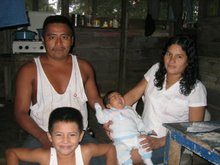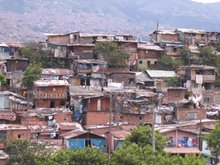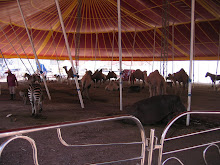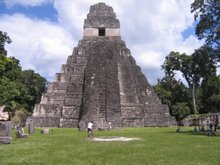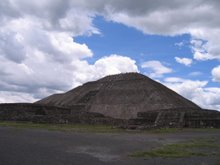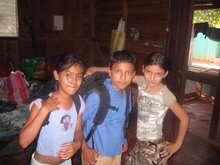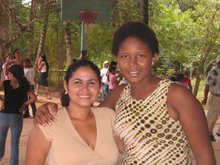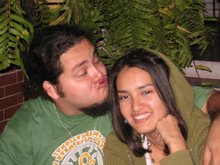Bogotá
A couple of days ago I took a tour around some of the poorer parts of Bogotà because I told my friend that his city was the most European that I had visited in my trip. True to what he said it was a visit back to the more familiar Latin America with many houses built in the semi-permanent style ¨slum¨style. They first build a square ground floor with a makeshift roof then gradually as resources become available the buildings grow. The areas I saw were actually some of the best low cost housing that I have seen on my trip. The list of sellable traits for real estate agents include: power, 3 storeys high, painted (some), made of brick (as opposed to wood or cardboard) and are built on flat ground unlike those in many cities built on slopes that become death traps with rain. This was in stark contrast to the rural dwellings I saw on my ventures out of the city made of wood with pieces of metal sheeting for roofing.
One of the strangest observations to be made from the areas of sprawl of the city was that there was no police presence at all. In the city centre there are police (who look like military) and military on every corner but in the poorer areas there are none. This either says that the poor don´t commit crime and aren´t the targets of terror attacks or the government doesn´t care about what happens there. Given that some of the outer suburbs were changing hands weekly between urban guerrillas and paramilitary just a few years ago in violent exchanges the latter seems more likely.
The developed appearance of the city perhaps represents the country with highest levels of inequality in all of the countries I have visited. It´s easy to go to a club here and feel like you are in London but then see many people in the streets outside sleeping or begging. The informal economy is also something disturbing about Latin America in general.
Informal economy are people who exist in the city but they really don´t contribute to the economy. They sell gum, cigarettes, snack food, clean shoes, sell newspapers, fresh fruit, advertise by handing out fliers in the street and what they make is what they make. No taxes or permits just the tight margins that they put on products that usually undercut supermarkets. Many people who contribute to the formal economy see these people as an inconvenience pestering them as they get on with there day whether it be working or on vacation. All these people are doing these jobs for survival, whether a part of the formal or informal economy. Most live in the outer suburbs of the city and have come looking for work from the country. One of the most shocking things that really made me wonder about where I was in world was seeing horses dragging carts with people and produce next to new cars through the street of the city. Apparently this will soon be a thing of the past, the plans are to phase out there use over the next year under pressure from animal rights groups and to clean up the image of the city. The question of human rights is the ones that I think need addressing. The right to food, education, health care and security all need to be addressed before the people can be blamed for horse drawn commerce.
There is a lot of debate at the moment about negotiating a free trade agreement with the US which most think will crush these small time vendors by competition. Some would say that this is the way of capitalism. People will chose cheapest prices and the consequences will be what they will be. People who say these things are generally people not selling on the street without any social security or guarantee of income beyond what they have already sold!
The military presence which I often confuse with the police because they both have the same colour uniform and manner is massive with large training centres and bases spread across the city. For some people this is reassuring because it means that guerrillas will have heavy military opposition should they try to come into Bogotá. For many it is a sign of a sick country where everything that exists is maintained by force. I am with the latter. Still after travelling all the way from Mexico seeing machine guns and shotguns daily in the hands of security guards, military and even concerned citizens ( in Oaxaca) I don´t feel comfortable in there presence. A machine who´s purpose is to intimidate as a minimum and exterminate life if those hands decide it´s necessary.
Leaving Bogotá I´m afraid that the image I have of it fits with that of other Capitals I have visited. Great inequality, pollution and insecurity. While I have to say that I enjoyed my time here and could live here were it not for the heavy military presence (or perhaps the need for it) I would not like to do so as one of those living on the outside participating in the informal economy. This can be said for most of the cities I have been to.
MISSION - keeganrs@gmail.com
My blog is about my dream for a world where everyone is allowed to exist and improving the quality of life of the world’s citizens is our priority.
For many reasons I reject the current path of the world.
Rich world insanity, excess and lies. Poor world denial of human rights and food. The destruction of the planet. Our homogenisation into one consuming mass of idiots.
Rich world insanity, excess and lies. Poor world denial of human rights and food. The destruction of the planet. Our homogenisation into one consuming mass of idiots.
We need to look for new ways. New human interactions at every level. New models of participation or at least rescuing old ones. Things like couchsurfing.com and woolf.org are steps in this direction as are the models of health and education being created and implemented in Venezuela.
We need to stand up and say "Enough!" to the current regimes and look to support all those initiatives for a better world and create our own.
Wednesday, 17 January 2007
Subscribe to:
Comments (Atom)



